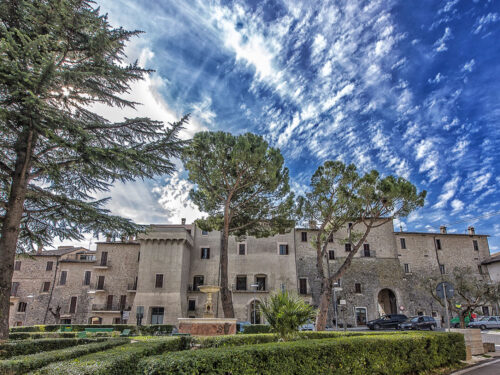
By Francesco Bianchini
When I finished elementary school and enrolled in junior high, my father – who had been trained in a well-heeled Jesuit institution – and my mother – educated in a posh convent of the Sisters of Nevers in France – did not rack their brains. They plunked me in the nearest school in an isolated Umbrian village just six kilometers from home. Thus I, the eldest of seven, was expeditiously transferred from the small elementary facility in Collevalenza to a public middle school in nearby Massa Martana.
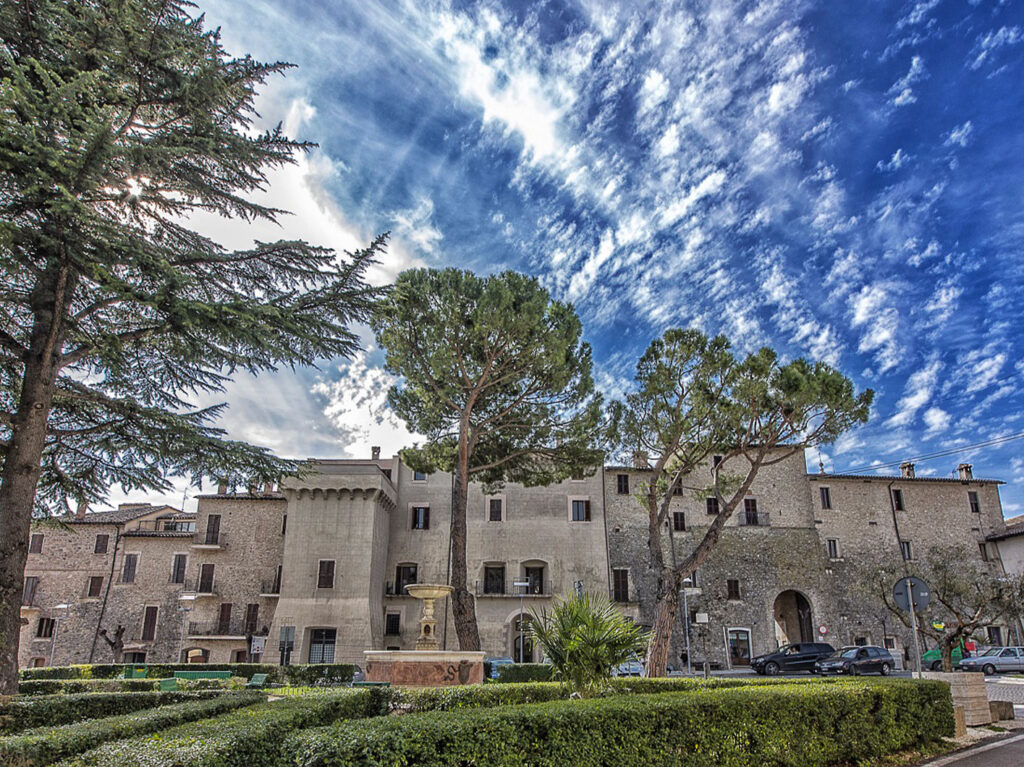
Massa Martana, hiding behind its formidable walls
Mother defended the choice by saying that ‘countryfolk were perhaps less sophisticated but more outspoken. They’d never say one thing to your face and something else behind your back – like bourgeois people in town.’ With so many children, I finally realized that my parents had adopted a rather laissez-faire attitude for it all: do the minimum of what had to be done, and everything would go the way it was supposed to. Their motto was – to which their actions and decisions seemed to correspond – do or die.
It was often our farm manager who took me to school, driving the old Renault 4 that had been my father’s – the one with the peeling and torn seats, impregnated with the smell of cheese. The man was one of few words, so that during our rides, I’d just stare at the swinging rearview mirror pendant, something he’d gotten from the infamous pornographic magazine Le Ore. Fortunately, my new classmates did not see that shabby side of the affair, but they did see that I normally arrived, day-by-day, escorted by a guy who was not my father. Exceptionally, however, it was sometimes dad behind the wheel of his tail-finned yellow Mercedes, who dropped me off. Two lines would form on either side of the big car, which had to proceed slowly, cleaving through the kids waiting in front of the still-closed gates. But their surprise was not over: from the passenger door sprouted one foot, then my other, shod in squat, boxy moccasins that my mother – our wardrobe supervisor – could only have found in emporiums catering to clergy. Sprouting from these, long socks exposed by my very out-of-date above-the-knee britches. If I had landed from a spaceship and had a balloon-shaped body covered with noses, I could not have caused a greater sensation. 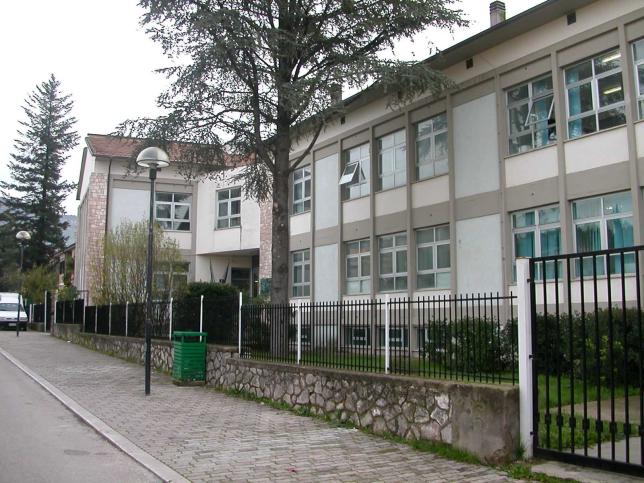
Scuola Media Augusto Ciuffelli
To appease the dismay, our Italian-history-geography teacher explained to my class to which bird species I belonged, and assured the kids that certain things were normal in the world from which I was being transported. Something reached my mother’s ear, however, because – out of the blue – she foisted on me a pair of long trousers of indefinite color, make, or material. As if she lacked the skills to cope with that sartorial revolution, as if continuing to dress us in the customary way was her only responsibility until, having become men, we would eventually provide for ourselves. Unlike the shorts, sewn by our seamstress and lined with satin, my new long pants – dug up who knows where – were not lined and horribly chaffed my skin. The solution I found was a pair of my great-aunt Gabriella’s varicose vein-restraining stockings, fastened on my thigh with antiquated garters. I certainly had to avoid the boys’ locker room at PE time and change very circumspectly in the deserted classroom.
My mother inquired and learned that most of the teachers came from Todi and therefore had to drive from Massa Martana past our house at the end of the school day. Unlike the pomp of my arrival, every day at 1:30 p.m. – after the other children had gaily swarmed down the street – I was forced to wait alone at the gate to beg a ride home. I was only eleven, but – although I did not fully grasp the cruelty of the circumstance – I knew instinctively that I was faced with two alternatives: either glumly to succumb, or defiantly to wear the shiny armor of my nonconformity.
One thought nagging me during those years was whether we were rich or poor, since all the signals I received in this regard were mixed. We did inhabit a kind of castle – the biggest house around – but it was still a sieve of a castle, leaking all over the place when it rained. We had a telephone when no one else did – but dad had padlocked it for local calls only. In summertime we all trooped up to the family mountain property at San Pietro, never taking a vacation abroad, or going to fancy beach or ski resorts like our cousins and acquaintances. My two grandmothers were undoubtedly well-off, living in swanky Roman apartments with actual heating and modern bathrooms – unknown in our antique abode – and they moved about in cabs, had expensive delicacies delivered to their doors, and shopped for finery in the best stores. But never, ever, would they have dreamed of putting money in our hands, as if it were a highly polluting substance to mar the innocence of childhood. 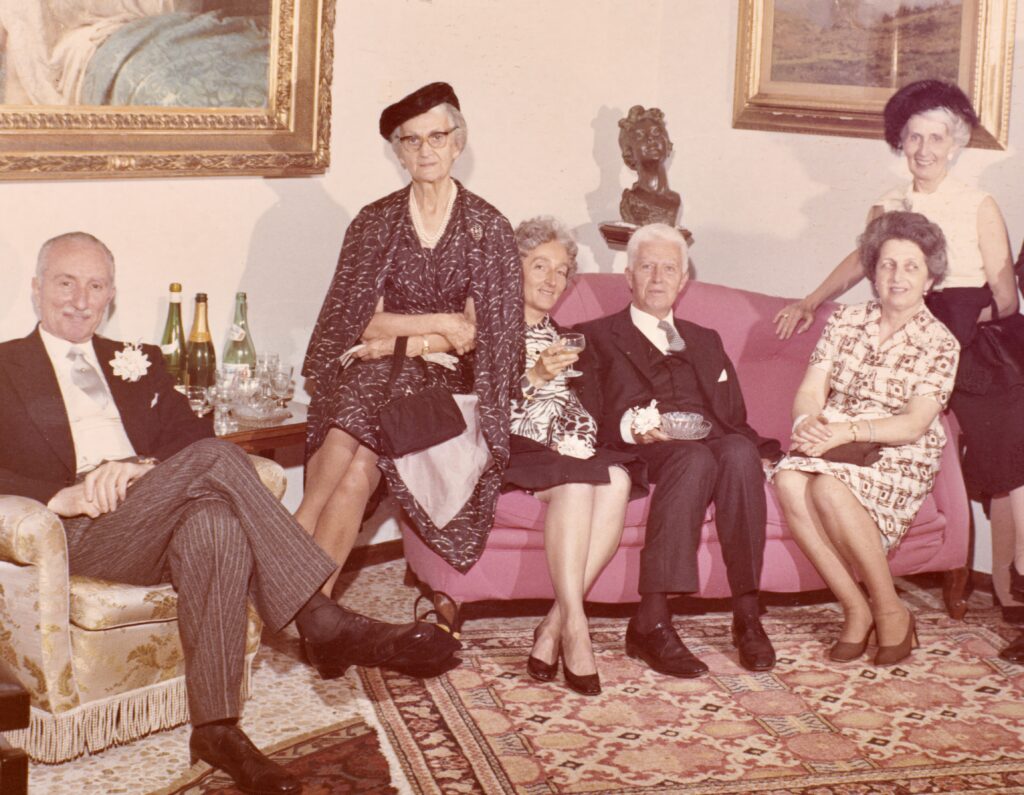
My granny perched on high – who did know the color of money
In fact, money was a dark mystery to me: I didn’t even know the various colors of Italian currency, as money remained virtually invisible throughout my adolescence. What I did need just materialized, like the outfits the seamstress made with the same pattern for all of us – always in shades of gray and ever-present navy blue. There wasn’t a store in town in which we didn’t have an open account, so asking my father for money for any other incidental expenses – like a school trip – was always laborious and exhausting. Money, in fact, seemed never to be at hand but had to be procured from some remote and secret place through an incalculable number of arcane transactions. 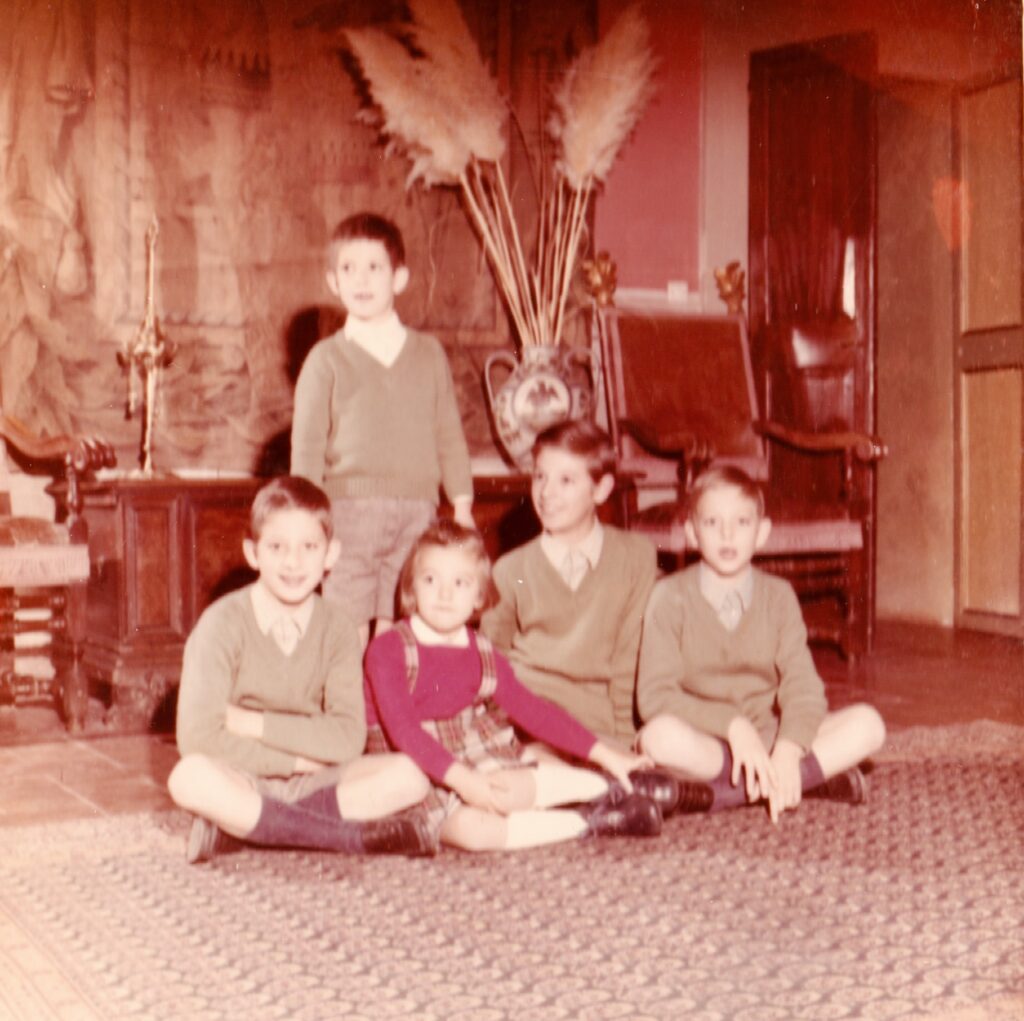
The team Bianchini, outfitted in their uniforms
My schoolmates always had some money in their pockets, mostly using it to buy themselves snacks to eat at recess. That was another point on which my mother was adamant: eating outside of meals was for her an act of barbarism as well as a risk factor for our health, which she took care to preserve with hearty spoonfuls of cod liver oil at breakfast. The harshest torture for me was to see those beautiful slices of pizza bianca being unwrapped around me, with the oily paper soiling the other kids’ fingers; to inhale the scent of the puffy golden dough, and of the onions cut as thin as crescents of the moon and browned on the surface; of the rosemary leaves; to hear the crunch of teeth as the other kids sunk into their treat.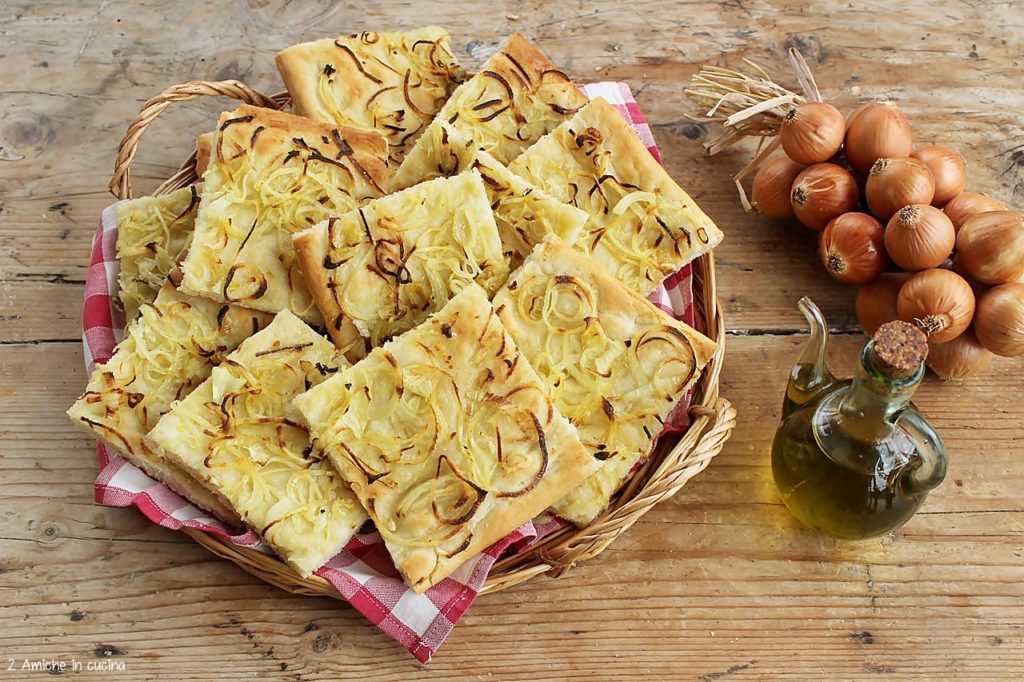
Delicious, crunchy, irresistible



